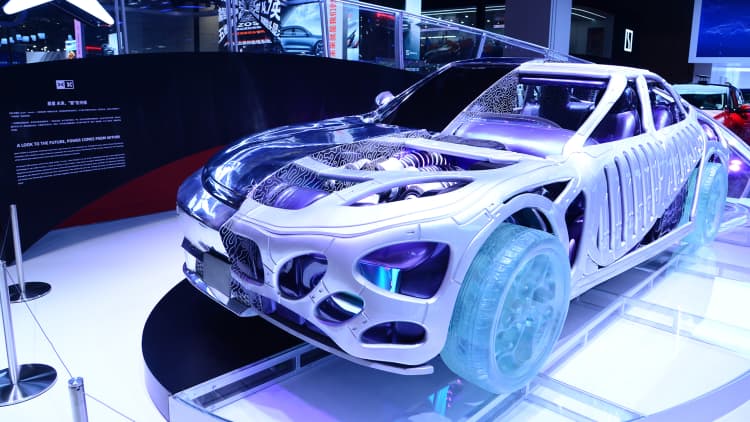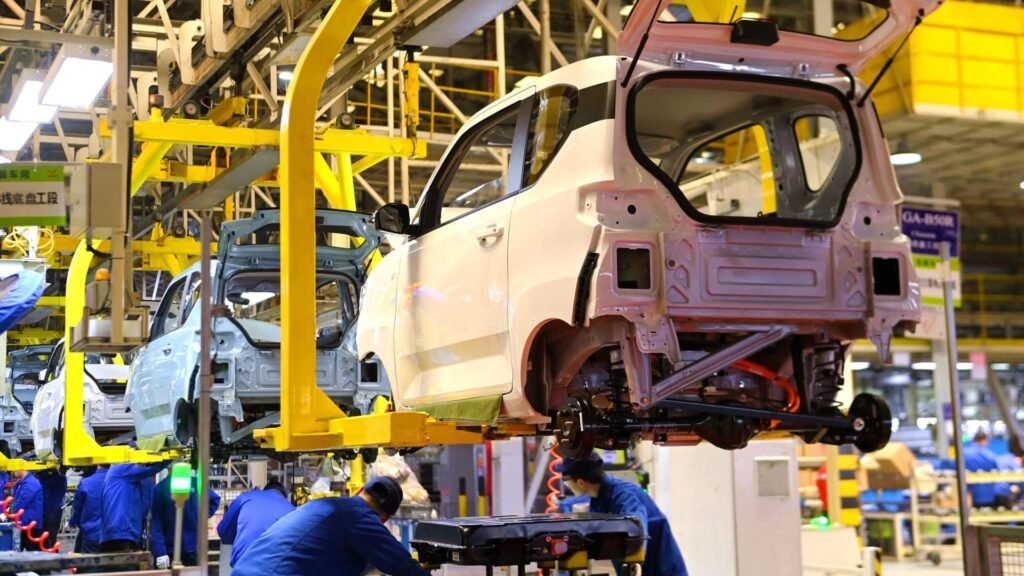Workers assemble the Wuling Hongguang Mini EV, an all-electric microcar manufactured by SAIC-GM-Wuling, at the joint venture automaker’s factory in Qingdao city, eastern China’s Shandong province, Tuesday, Nov. 30, 2021.
Future Publishing | Future Publishing | Getty Images
BEIJING — China has spent $230.8 billion over a decade developing its electric vehicle industry, according to an analysis released Thursday by the U.S. Center for Strategic and International Studies.
Scott Kennedy, China business and economics director at CSIS, said the government’s support amounts to 18.8% of total electric vehicle sales from 2009 to 2023. He noted that such spending as a percentage of EV sales is falling from more than 40% before 2017 to just over 11% by 2023.
The findings come as the EU plans to impose import tariffs on Chinese-made electric vehicles, citing subsidies used in their production.
Last month, the United States announced it would raise import tariffs on Chinese-made electric vehicles to 100%.
With a few exceptions, Western automakers and governments have generally been dithering and not proactive enough.
Scott Kennedy
Director of China Business and Economics at CSIS
Kennedy noted that Beijing’s support for electric vehicles also includes non-financial policies that favor domestic manufacturers over foreign ones, but he also noted that the United States does not have as attractive conditions as China for developing its own electric vehicle industry.
“There are exceptions, but generally Western automakers and governments have been dithering and not aggressive enough,” he said.Four years ago, Kennedy laid out seven policy initiatives in a report on potential trade conflicts from Chinese electric vehicles.
Government subsidies don’t always go directly into car development: At least five companies were found to have defrauded the government of more than 1 billion yuan ($140 million) during China’s early EV development, the finance ministry said.
Chinese-made cars are also benefiting from the growing popularity of electric vehicles in China, eating into a once-lucrative fuel-powered market for foreign automakers.Increasing competition has led analysts at Bank of America to say this week that big U.S. automakers should pull out of China and focus their resources elsewhere.
“Every independent auto analyst and Western automaker I’ve spoken to agrees that Chinese EV manufacturers and battery producers are making incredible progress and must be taken seriously,” Kennedy said.
But he noted that extensive government support for Chinese EV companies and a growing market have yet to significantly boost profits.
“In a well-functioning market economy, companies would be more cautious about investing in new capacity and such a large gap between supply and demand would likely lead to industry consolidation,” he said.
BYDThe company’s net profit per vehicle fell to the equivalent of $739 over the past 12 months, according to CLSA’s first-quarter analysis. TeslaAccording to the data, the stock price fell to $2,919.
The EV industry has faced fierce price wars over the last year, with automakers slashing prices or launching lower-cost product lines.

Chinese electric vehicle startup NioThe company, which is still operating at a loss, said last month that it expects about 10 automakers to withdraw from the Chinese market, leaving 20 to 30 remaining.
The United States is stepping up efforts to support electric vehicles: The Inflation Control Act, enacted in August 2022, allocates $370 billion to promoting clean technology.
Kennedy noted that the legislation provides a $7,500 credit for the purchase of qualifying electric vehicles. This contrasts with an average assistance of $4,600 per electric vehicle purchase in 2023, down from $13,860 in 2018.
— CNBC Dylan Batts contributed to this report.




